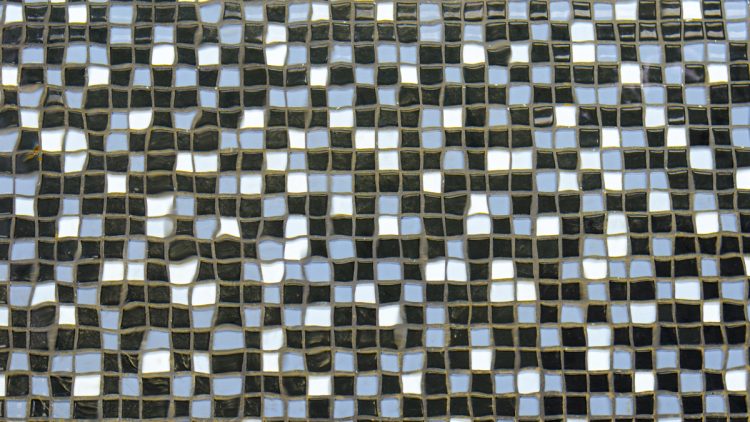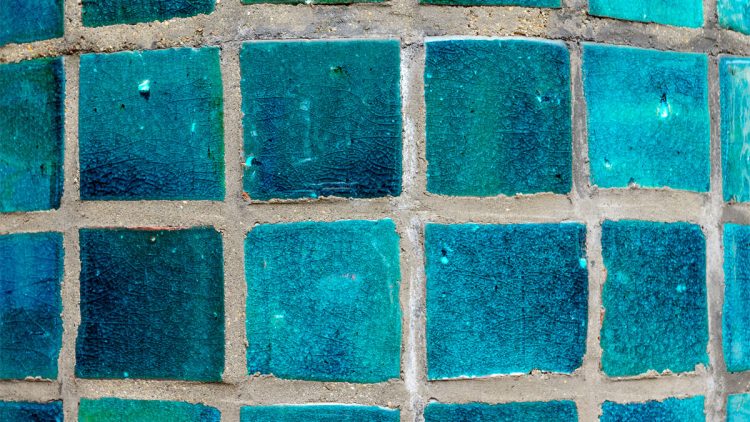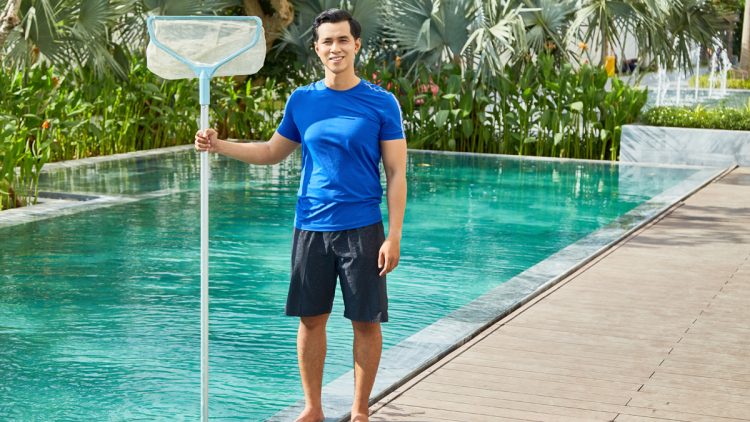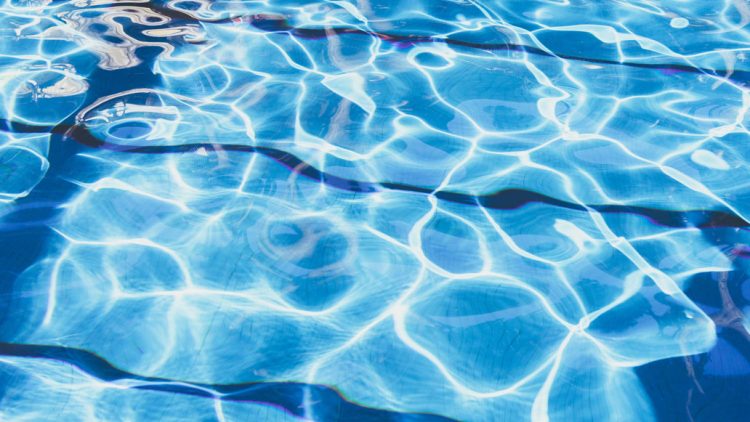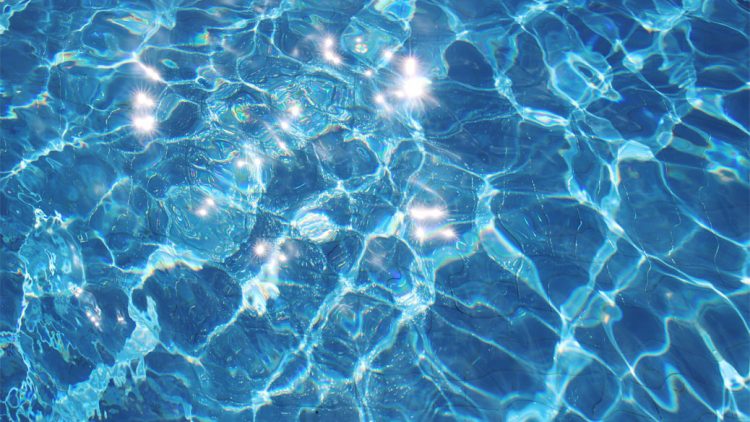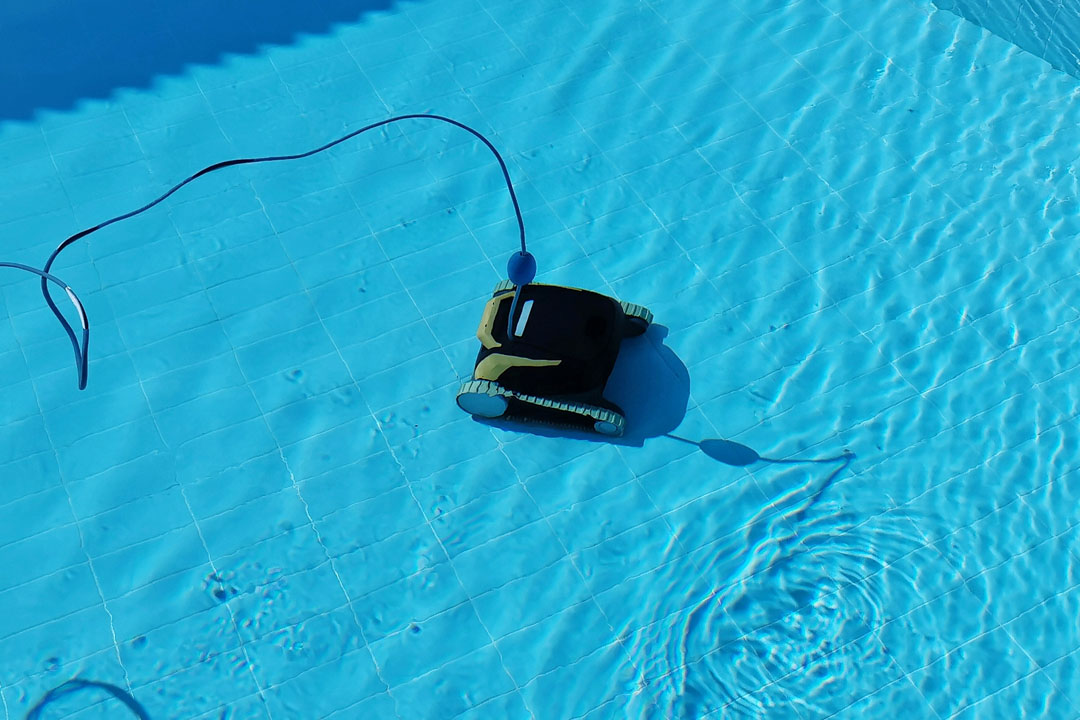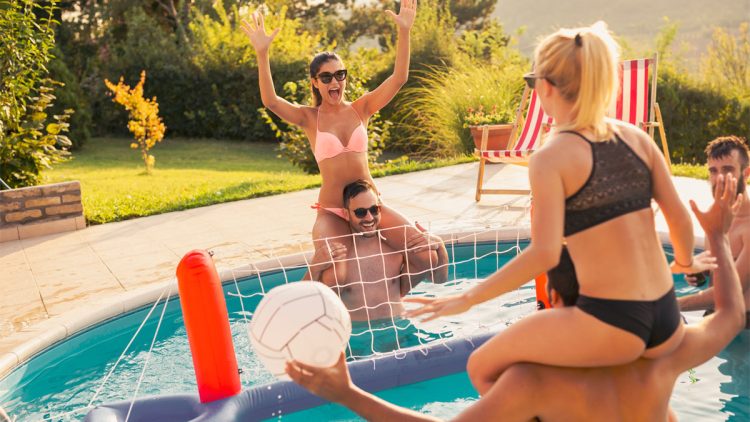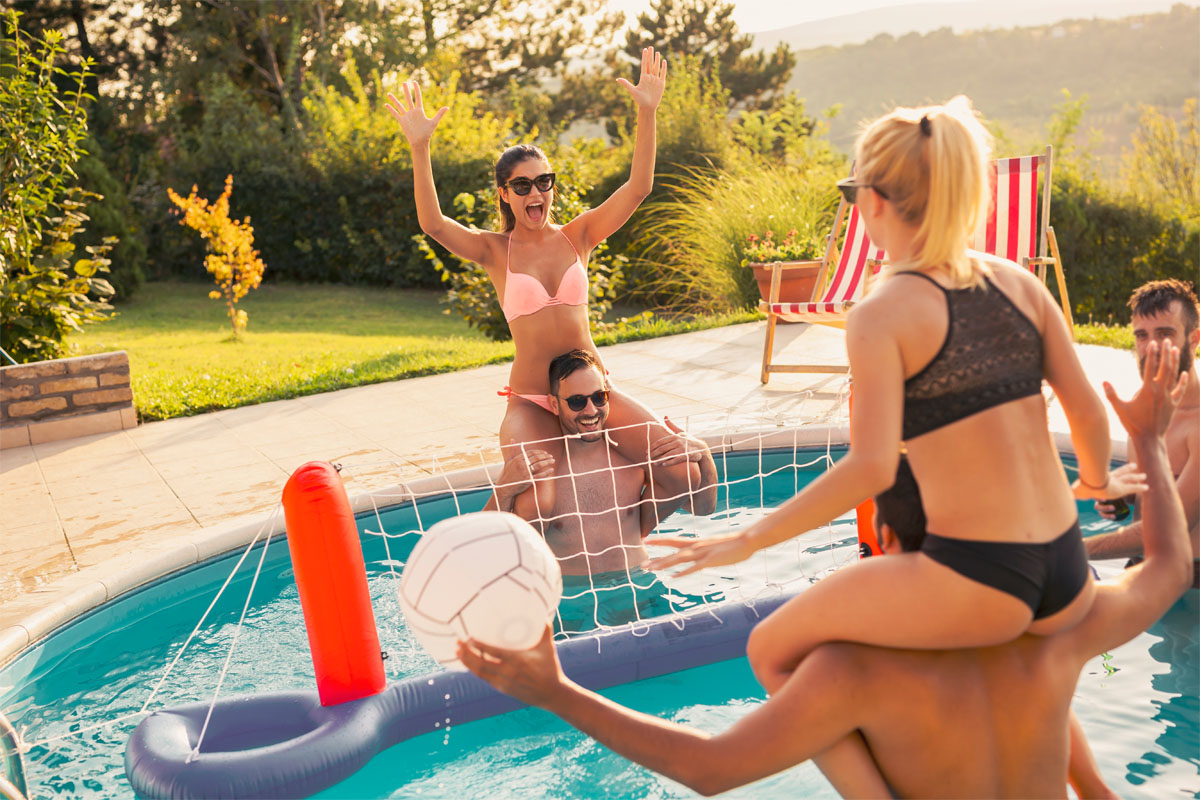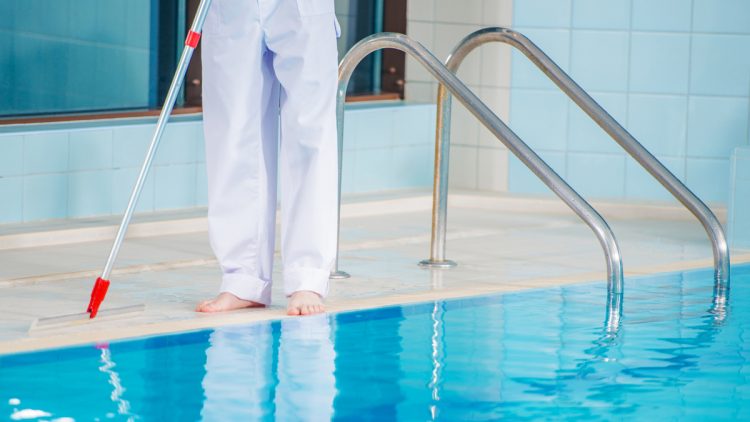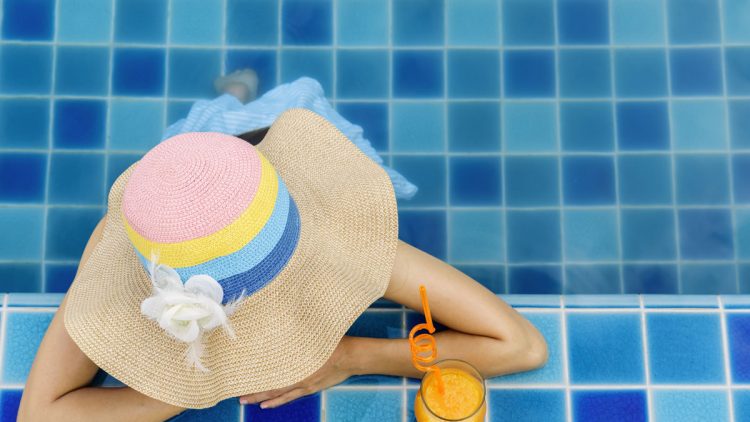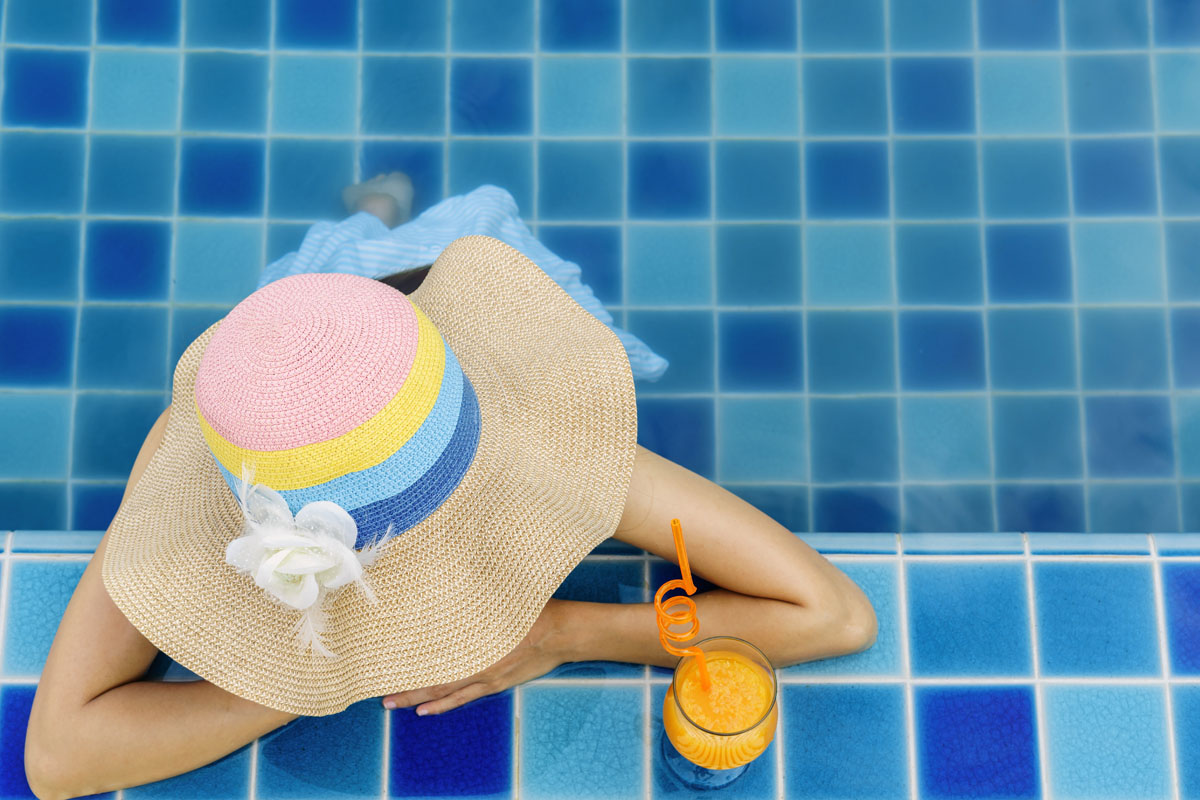What Is Glass Bead Blasting In Swimming Pools?
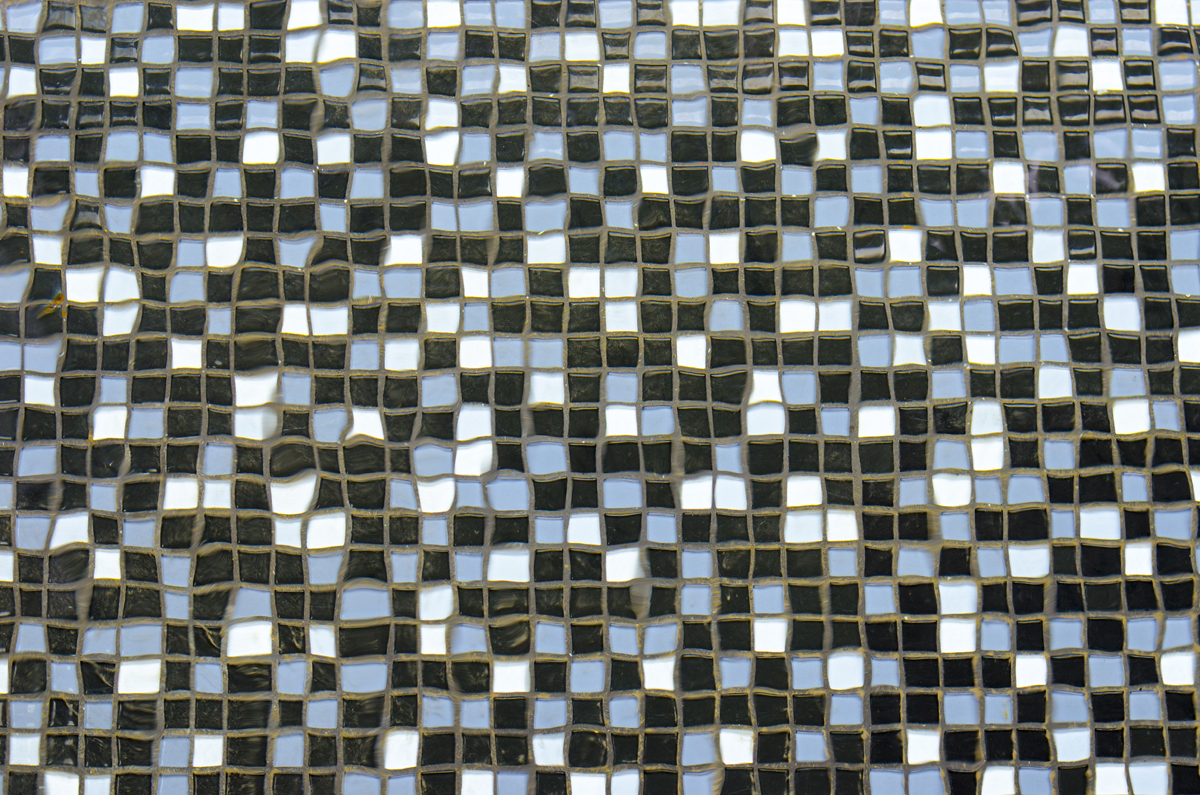
Glass bead blasting is a specific way to clean swimming pool tile and stone by getting rid of hard calcium deposits and scale. Because of our hard water and lengthy hot seasons, homeowners in Gilbert typically have to deal with a lot of mineral accumulation. When ordinary washing and chemical cleaners don’t work, professionals use glass bead blasting to clean and polish tile surfaces.
How Glass Bead Blasting Works
The procedure uses a high-quality compressor to drive very small, round glass beads toward the tile at a set pressure. These beads hit the surface gently and break up calcium buildup without hurting the tile underneath. The beads are spherical, which is crucial because it cleans the scale without leaving scratches or pits. This is what makes glass bead blasting different from other strong abrasive processes that can make tile look rough or faded.
The technician guides the stream of beads along the waterline tile during the service. This is where calcium deposits are usually the most concentrated. The scale loosens and slips off as the beads touch it, showing the original surface. The procedure goes fairly quickly, and cleaning up is straightforward because the beads are safe, inert, and easy to collect and get rid of.
Why Gilbert Pools Need This Service
Gilbert and the East Valley nearby have some of the toughest city water in Arizona. Minerals stay behind as pool water evaporates and stick to the tile. This makes a thick white or gray band along the waterline over time. The buildup gets worse as the sun shines on it, making it even harder to get rid of.
You can clean this scale using glass bead blasting instead of harsh chemicals or replacing the tiles. The approach is safe for ceramic tile, porcelain tile, glass tile, and many natural stone surfaces that need to be handled carefully.
The Good Things About Glass Bead Blasting
Glass bead blasting brings back the original elegance of pool tiles. The results are quick, and the surface often looks almost new after the scale is gone. Also, the method helps the pool keep its worth because a clean waterline is one of the first things that guests and potential buyers see.
It also makes the pool cleaner, which is another benefit. Calcium deposits can hold dirt and organic matter, which can lead to discoloration and algae. Taking off scale makes the pool cleaner and makes it easier to keep up with in the future.
The procedure is also good for the environment. The beads don’t have any chemicals in them, so you can gather and throw them away without hurting plants or pets.
Get In To The Swim!
The safest and most dependable technique to get rid of calcium buildup in Gilbert, Arizona is to blast it with glass beads. Your pool tile can be fixed quickly, cleanly, and without harm if you have the correct tools and a professional specialist.
Pool Care In Gilbert, AZ
Pool Service Gilbert is a family-owned and operated business that has been serving the valley since 2004. We offer reliable and affordable pool services, including repairs, replacement, equipment installations and more! Our service area includes Ahwatukee, Chandler, Gilbert, Mesa, Phoenix and Tempe, Arizona. Contact us right here for your upcoming pool service needs! Call us at 480-748-3022 for more information.

